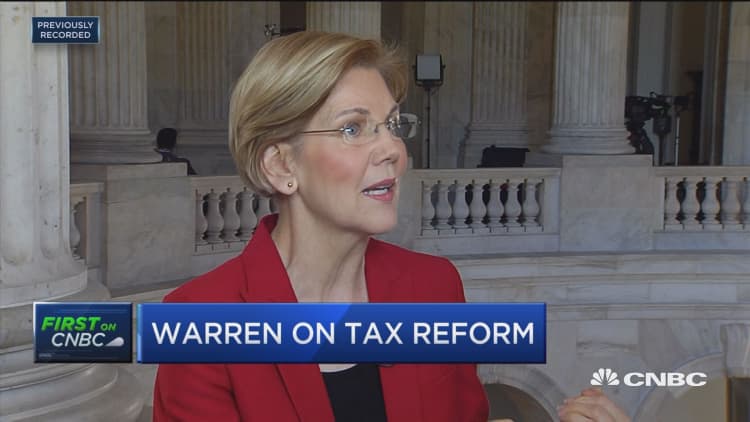The Republican tax bill will leave the nation's biggest health-care tax exemption for employer plans unchanged but would wipe out a key medical deduction for many elderly Americans in nursing homes.
The bill would repeal the medical expense deduction, which allows people who spend more than 10 percent of their income on out-of-pocket health costs to write them off.
"This would be a joke if the consequences weren't so serious," said Brad Woodhouse, campaign director of health-care advocacy group Protect Our Care, in a statement. "Republican leaders are determined to raise health-care costs for middle-class families who need it most — in this case people with high medical costs or those paying for long-term care."
While it's not a widely used tax deduction — about 5 percent of tax filers claim it — for the old and sick it can be significant.

"It tends to be mostly … older people who do not have long-term care insurance, and end up in a nursing home," said Richard Kaplan, a professor who specializes in tax policy and elder law at the University of Illinois College of Law.
The cost of living in a nursing home can easily run up to tens of thousands of dollars per year and wipe out the savings of elderly residents who are paying out of pocket. The deduction can be an important offset to taxes those Americans would owe on their retirement savings distributions.
"For people who are receiving long-term care and are paying for it themselves, this is going to be a huge deal," said Kaplan.
The medical expense deduction is not a big expense when it comes to budget line items. According to the Treasury Department, it will cost the government about $10 billion a year in lost tax revenues in 2018 and about $144 billion over the next 10 years.
By contrast, the exemption for employer-sponsored health plans amounts to more than $225 billion a year in lost tax revenues next year and more than $3 trillion over the next decade. Past efforts to scale back the employer plan exemption have been highly unpopular.
The GOP tax bill leaves the employer plan exemption unchanged, but the proposal would now require employers to report the value of contributions to workers' health savings accounts on W-2 tax forms.
"Right now on the tax return, if an employer provides health insurance, they have to show that in one of the boxes (on the W-2)," said Kaplan, but under the new proposal, "the health savings amount would be in the box, as well."
It's not a big deal if employer health plans continue to remain exempt from being taxed, Kaplan said. But it could potentially boost the number of employers and workers subject to the so-called Obamacare Cadillac Tax, which effectively caps the current exemption by imposing an excise tax on high-cost health benefits. The tax is currently slated to be implemented starting in 2020.
"That would be useful information to implement the Cadillac Tax," said Kaplan, though he notes that implementation of the unpopular provision has been repeatedly delayed.
WATCH: Sen. Warren says GOP plan gives billions to Wells Fargo



